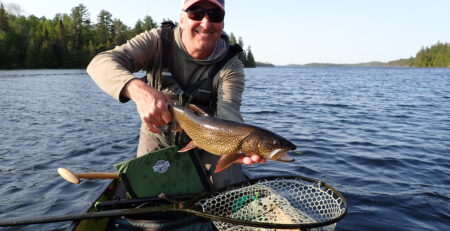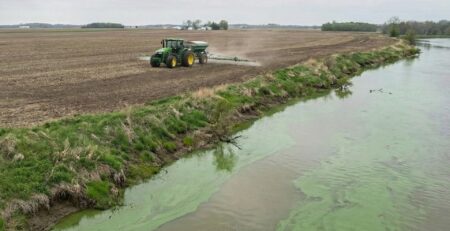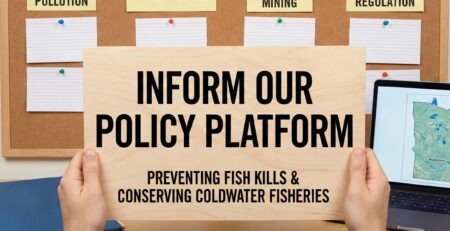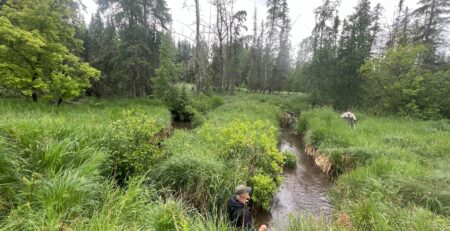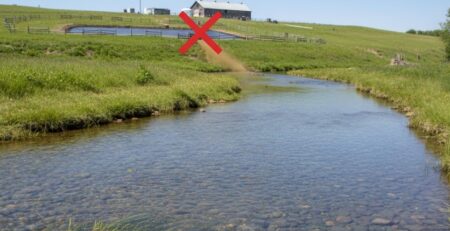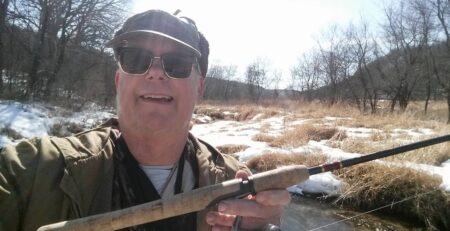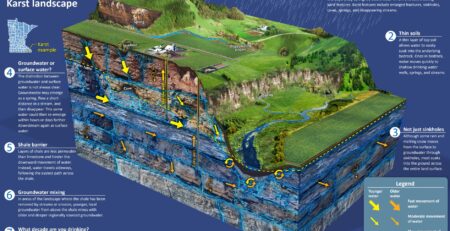Groups Petition to Protect Minnesota’s Environment and Communities from Dangerous Pesticides
October 15, 2024
FOR IMMEDIATE RELEASE:
Contacts:
Jesús Canchola Sánchez, jcanchola@nrdc.org
Sarah Horner, shorner@mncenter.org
Kristen Poppleton, kristen.poppleton@mntu.org
Rulemaking petition submitted to Minnesota Department of Agriculture to remedy longstanding, harmful contamination of lands and waters
SAINT PAUL, MN (October 15, 2024) – The NRDC Action Fund, the Minnesota Center for Environmental Advocacy (MCEA), and Minnesota Trout Unlimited have filed a petition calling on the Minnesota Department of Agriculture (MDA) to adopt rules to protect Minnesota’s environment and people from neonicotinoids and other dangerous insecticides.
Neonicotinoids, known as “neonics,” are insecticides regarded as among the most ecologically harmful pesticides since DDT. They are pervasive pollutants, found in waters across Minnesota and in the bodies of 94% of Minnesota’s white-tailed deer in a recent survey. Neonics are a leading cause of declines in bees and other pollinators and linked with mass bird population declines, the collapse of important fisheries, and birth defects in white-tailed deer. And they hurt food production not just by killing important pollinators, but also decimating other beneficial insects and degrading soil health upon which farmers rely.
Neonics’ widespread use and neurotoxic makeup also pose substantial threats to human health. Neonics have been detected in the bodies of over 95% of pregnant women tested nationwide, a particularly concerning statistic as prenatal exposure is linked with diverse harms, including birth defects of the heart and brain and autism-like symptoms.
“Neonics are among the most pervasive ecological and public health threats Minnesotans face today and it’s about time that our state starts acting like it,” said Leigh Currie, chief legal officer for Minnesota Center for Environmental Advocacy (MCEA). “MDA has the tools to help protect against these dangerous neurotoxins; we hope that this petition convinces MDA to start using them as soon as possible.”
The petition asserts the Minnesota Department of Agriculture is legally obligated to address the widespread, unnecessary use of neonic-coated seeds in Minnesota. The petitioners have called upon MDA to develop a regulatory program tailored for treated seeds to most effectively and efficiently control neonic pollution.
“Research has shown us over and over that the most common neonic seed treatments offer no economic benefits to farmers in northern climates,” said Lucas Rhoads, senior advisor to the NRDC Action Fund. “Meanwhile, they are the leading cause of contamination that is decimating Minnesota’s treasured natural resources. A simple cost benefit analysis will tell you that it’s time to curb their use and protect our people and environment before it’s too late.”
“Neonicotinoids are highly toxic to the aquatic insects that form the base of food webs that support trout fisheries in Minnesota,” noted John Lenczewski, Minnesota Trout Unlimited’s executive director. “MDA’s data shows that concentrations of these pesticides in Minnesota streams routinely exceed safe levels for aquatic invertebrates. It is time for MDA to begin regulating the primary source of neonicotinoids in public waters – treated seeds.”
###
The NRDC Action Fund is a national environmental advocacy and political organization that is affiliated with but separate from the Natural Resources Defense Council (NRDC). The two organizations’ names may not be used interchangeably. News and information released by the NRDC Action Fund should be identified as from “the NRDC Action Fund.” and not from NRDC. Learn more at www.nrdcactionfund.org.
Minnesota Center for Environmental Advocacy (MCEA) is Minnesota’s leading nonprofit environmental law and public policy organization working to protect our environment and the health of our people
Minnesota Trout Unlimited (MNTU) is a nonprofit, nonpartisan conservation organization whose mission is to protect, restore, and sustain Minnesota’s coldwater fisheries and the watersheds and groundwater sources that support them.

